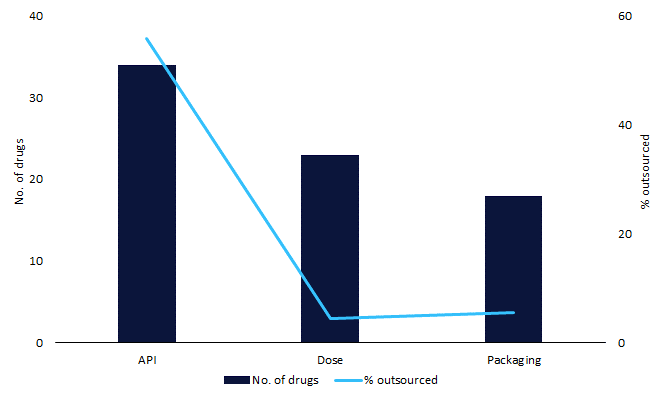The current war in Israel is a humanitarian crisis that presents major challenges to the region’s pharmaceutical manufacturing and export industry.
The local pharma industry is already adapting to changing conditions due to staff safety issues and military drafts reducing the number of available staff in the country.
On 7 October, the Palestinian militant group Hamas launched Operation Al-Aqsa Flood, a large-scale surprise attack from the Gaza Strip onto bordering areas in Israel. These attacks instigated the 2023 Israel-Hamas war.
Some global companies operating in Israel have closed their businesses in the area for security reasons or because their employees are being called up for military service.
Israel has called up more than 300,000 military reservists for the conflict. Other businesses have requested that employees work from home throughout this period if possible.
Sun Pharmaceutical Industries of Maharashtra, India, is concerned that its acquired Israeli subsidiary Taro Pharmaceutical Industries, based in Haifa, could see its sales and manufacturing impacted by the conflict, the company told Indian pay-tv broadcaster CNBC-TV18.

US Tariffs are shifting - will you react or anticipate?
Don’t let policy changes catch you off guard. Stay proactive with real-time data and expert analysis.
By GlobalDataThe channel reported that some employees working for Taro in Israel have already been called up for active duty.
Various multinationals with operations in Israel have released statements regarding their strategy for the future.
Eli Lilly and Company, based in Indianapolis, US, said it was closely monitoring the evolving situation in Israel and will take all necessary steps to ensure the safety of its colleagues in and near the affected areas.
It is also working to ensure all critical operations remain in place to provide an uninterrupted supply of Lilly medicines to patients in the region.
Bristol Myers Squibb, based in Princeton, US, also said it was monitoring the situation in the country and is maintaining a supply of medicines for patients in the region.
Teva Pharmaceutical Industries meanwhile, based in Tel Aviv, Israel, said production remains largely unaffected and that it maintains contingency plans with backup production locations for its key products.
Teva said it currently does not expect a meaningful impact on its business or its financial and operational performance.
The company’s sales in Israel account for just 2% of its global revenue while production in the country constitutes less than 8% of total global manufacturing in dollar terms.
Middle East stock markets had significant (and sustained) declines following the attacks, particularly stock indices in Israel, Palestine, Qatar, Saudi Arabia, Turkey, and the United Arab Emirates.
The Indian domestic pharmaceutical industry is particularly concerned as the war is threatening to disrupt its exports to several countries in the Middle East and North Africa region.
Indian exports to Israel may incur higher insurance premiums and shipping costs due to the ongoing war.
On the other hand, if Israel’s pharma supply to the US and Europe is disrupted, Indian companies could capitalise on opportunities to fill the gaps via their own imports.
Israel-based manufacturing facilities produce 43 innovator or biosimilar drugs approved in the US, UK, and/or EU, mostly these drugs’ active pharmaceutical ingredients (APIs).
These include commercially successful drugs such as Horizon Therapeutics‘ (Dublin, Republic of Ireland) Krystexxa and Teva Pharmaceutical Industries’ Copaxone.
More than half of the APIs manufactured in Israel for innovator drugs are outsourced to a contract manufacturing organisation (CMO).





